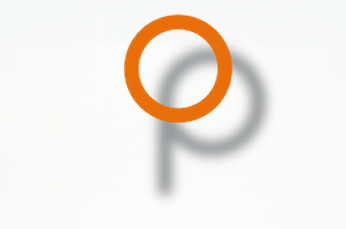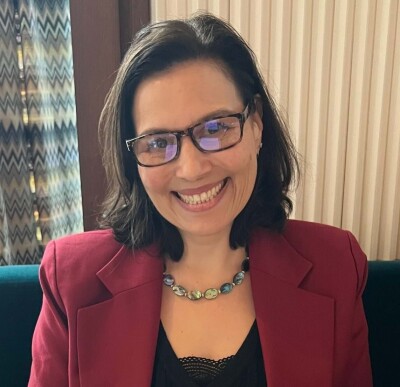Will handle Point Cloud Library, libE57, and more
MENLO PARK, Calif. – The people who brought you the Point Cloud Library project, including robotics-focused Willow Garage and a number of other firms, have launched a separate non-profit organization that will manage the Point Cloud Library along with other open source point cloud processing initiatives. Heading up the effort will be Radu Rusu, now president and CEO of the newly created Open Perception, and formerly the head of Point Cloud Library project while at Willow Garage.
For the time being, the new organization will be housed in the same building as Willow Garage’s offices here.
“The main reason for this is just that we sort of outgrew Willow Garage,” said Rusu, in an interview with SPAR. “We started in March of 2011 [see an interview here with Rusu about the PCL project done by SPAR last year] and up until about November we were doing okay, then more and more companies started joining the consortium, which came with financial contributions, and by February or March of this year we realized we were paying around 35 people, which means we had basically grown Willow Garage by 50 percent.
“Neither I nor [Willow Garage president and CEO] Steve Cousins dreamed we would get this big this fast.”
When the two began the Point Cloud Library project, for example, it was focused on how the robotics industry might process point clouds to help with autonomous and semi-autonomous operation. However, there are now as many as 350 developers using the open source code, many of them coming from mapping and computer graphics industries, “and it actually does more for those communities than for robotics now,” said Rusu.
So, spinning off a separate company made sense, but spinning off a separate company that was both for-profit and open source did not make sense. Thus, the new 501c3 non-profit entity.
“This sends a clear message,” Rusu said, with a laugh, “to our commercial partners that we’re not going to take their technology and screw them over.” Seriously, though, “now, instead of Willow Garage deciding where this is heading, there’s a board of people and they can decide.”
The Open Perception board of directors currently includes Willow Garage’s Cousins; David Boardman, CEO and co-founder of URC Ventures, which works in large-scale photogrammetry and which has donated code to PCL in the past; Frank Dallaert, associate professor in the School of Interactive Computing at the Georgia Institute of Technology; Terry Fong, director of the Intelligent Robotics Group at NASA Ames; Anwar Ghuloum, director of mobile computing and computer vision software at computer graphics firm NVIDIA; and Ken Spratlin, general manager of the GeoSpatial Division at Trimble.
Open Perception is now free to hire people, set its own direction, and even take funding from new and different sources that weren’t possible when PCL was part of Willow Garage.
So, what’s on the agenda now? “This is going to depend a little bit on the funding situation,” Rusu said, while making a general pitch for donations to the cause. “The more funding we get, the more we can do.”
That said, mobile devices are a major focus for Open Perception – “we’re working quite heavily on getting PCL to be integrated on the iPad,” Rusu said by way of example, “and streaming to mobile devices in general, and also doing processing … a tablet is the perfect sweet spot. We actually like looking at point clouds more on tablets than we do on computers. There’s something about the interactive quality there that’s attractive.”
He said a few companies would soon have releases for mobile devices that would use open source PCL technology “under the hood.”
Another focus, not surprisingly, is the cloud and large-scale data processing. With this year’s Summer of Code project, “we’re moving toward that,” Rusu said. “We’ll have some interesting demonstrations soon.” Look, too, for a 2D-to-3D project that’s being sponsored by NASA, which is hoping to move that capability forward considerably as part of a one-to-two-week hackathon.
“That should start in July and August,” Rusu said, “with multiple teams competing on 2D-to-3D imagery. [NASA] want to improve that body of work, as that’s what they get from their satellites.”
Open Perception is also hoping to create some other services that aren’t necessarily just involved with developing code. For example, they might offer some web-based benchmarking and testing services, where developers could upload test data and see how it might be, or should be, handled by the PCL code. Rusu hopes to get NIST on board with this portion of the benchmarking effort.
“Honestly, I don’t think any company out there is willing to do benchmarking,” Rusu said. “It’s not in their best interests. I think the responsibility mostly falls on the community, and if we do it as open source, there’s a greater chance of doing a fair comparison.”
Rusu said Open Perception, pending a funding source, would also be taking on the libE57 effort, which creates open source software for managing files that adhere to ASTM’s E2807 Standard Specification for 3D Imaging Data Exchange (generally known as the E57 standard). He said of the current E57 standard, “there’s a lot of promise here,” and pledged Open Perception’s full support of the standard going forward, though he expressed some disappointment that E57 isn’t a working format and that it’s more useful for transferring, storing, and archiving data than anything else.
“But you have to acknowledge that things before E57 were very bad,” Rusu said, “with every hardware manufacturer having a different format. And just getting these companies to agree on something is extremely hard. It’s a very good first step.”
Similarly, launching Open Perception as a new non-profit with a focus on open source code for point cloud processing is just a good first step, as well. Where it will lead will depend on funding, what some of those funders think is important for code development, and what kind of adoption point cloud technology finds in the world at large.
Probably only one thing is certain: “We’re going to do some cool stuff,” said Rusu.






